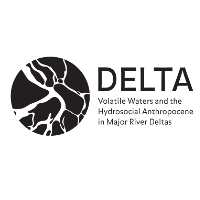Situated in the North-East of Bamenda (Cameroon), the riverine wetlands constitute the ultimate larger open sphere within the city and mark the boundary between two Fondoms (Chiefdoms) and two governmental subdivisions. Within the last 50 years, the area changed from dry- to wetland and, in property terms, from customarily controlled over individually held (but customarily embedded) to governmentally owned land. However, despite state ownership and the more recent designation to become the city’s second center, the wetlands are (informally) used by herders and fisherman and passed on and cultivated by a multitude of mostly female farmers during the dry season and parts of the rainy season.
The book chapter, emerging from an MA thesis, delineates how farmers negotiated access, control and cultivation as well as sense of belonging and attachment in a situation of environmental volatility (flooding) and normative and legal pluralism. It shows how farmers who married into a family on site and obtained rights of use within the family or were passed a plot by their fathers, understood themselves as 'owners', who, after the declaration of wetlands as governmental property in 1974, had 'lost' the land to the state although they remained de-facto/informally to a large degree in control over it. Others, in contrast, with a more recent history in rural-urban migration perceived themselves as 'possessors' and 'care-takers' with a more temporary attachment, informed by their 'foreign' origin (they had their own family-soil in their home-villages and did not belong to one of the two Fondoms on site) and by the dangers of losing the land to the water or the government. They usually gained access to a plot through lease and, after some years of 'fruitful' cultivation, both socially and economically, some were able to purchase it. Furthermore, both early- and late-comers solidified their access and control over land as well as their individual monetary and social benefits from it towards their (patrilineal) kin.
The dealing of farmers with the changing and partly coexisting, overlapping and competing governmental and customary authorities was characterized by fragility and avoidance and linked to the farmers' informal tenure, bargaining power and affiliation. They hence tried to circumvent both authorities to a large degree and to solve conflicts among themselves and along norms such as seniority or experience. Still, contact with authorities was sometimes unavoidable, for instance in the case of boundary conflicts (mediation through customary authorities) or infrastructural measures (e.g. canal-straightening by governmental- or commonly executed canal-maintenance organized by customary authorities). For the authorities in turn accounts that their power over the farmers depended on a constant negotiation between 'potent' absence and 'successful' presence. Thus, absence could lead to being forgotten or taken as irrelevant, while every concrete exercise of power posed the threat of failure or devaluation.
Thinking such absence-presence-negotiations of power-relations between wetland- or delta-users and the different authorities or foreign actors further, may become an interesting challenge for the DELTA project, especially in terms of scale and complexity. What strategies do local users apply to deal with authority? How does territoriality play itself out in such a diverse set-up? How do discursive and practical negations of ownership, belonging and attachment take form and how to they relate to each other?
The chapter "Fragile Ground, Contested Soil: Dynamics of Tenure and Policy in the Bamenda Wetlands" can be found in: Boehi, M., Ramutsindela, M. und Miescher, G. (eds.): The Politics of Nature and Science in Southern Africa. Basler Afrika Bibliographien, Basel, 2016. It can be ordered here.

